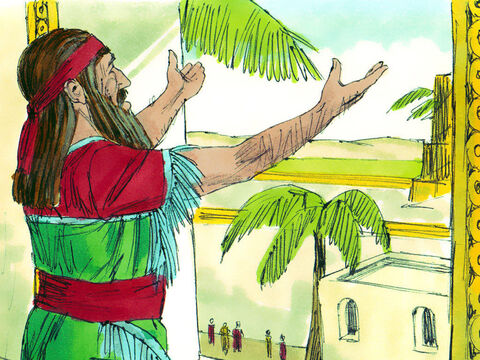In the Book of Daniel, we find an intriguing account of a young Jewish man who, despite being in captivity, chooses to follow a unique diet that sets him apart. Daniel’s dietary choices, driven by religious and cultural reasons, align closely with what we now call a vegan diet. This ancient practice has significant modern relevance, shedding light on the benefits of a plant-based lifestyle.
Daniel was among the elite young men of Judah taken into Babylonian captivity during King Nebuchadnezzar’s reign. Selected for their potential to serve in the Babylonian court, Daniel and his friends faced the challenge of maintaining their Jewish identity in a foreign land.
Key Passage: Daniel 1:8-16 (NIV)
“But Daniel resolved not to defile himself with the royal food and wine, and he asked the chief official for permission not to defile himself this way… Daniel then said to the guard… ‘Please test your servants for ten days: Give us nothing but vegetables to eat and water to drink. Then compare our appearance with that of the young men who eat the royal food, and treat your servants in accordance with what you see.'”
Exploring the Biblical Roots and Benefits of a Plant-Based Diet
After ten days, Daniel and his friends appeared healthier and better nourished than those who consumed the royal food, leading the guard to permit them to continue their diet.
Motivations Behind Daniel’s Diet
- Religious and Cultural Adherence: Daniel’s refusal to eat the king’s food was likely due to adherence to Jewish dietary laws (kashrut), which prohibited certain foods and preparation methods.
- Health and Purity: Maintaining physical health and spiritual purity were crucial for Daniel. His choice reflects a commitment to holistic well-being, honoring God through bodily discipline.
Benefits of a Vegan Diet: Insights from Daniel’s Experience
Daniel’s plant-based diet, though motivated by religious reasons, provides a valuable case study for the benefits of veganism. Modern research supports many of the health benefits Daniel experienced.
1. Improved Physical Health
Daniel’s diet of vegetables and water led to noticeable improvements in his physical health compared to his peers. Contemporary studies have shown that a vegan diet can:
- Lower Blood Pressure: Plant-based diets are associated with lower blood pressure, reducing the risk of heart disease and stroke.
- Enhance Cardiovascular Health: Vegan diets are typically low in saturated fats and cholesterol, contributing to better heart health.
- Support Healthy Weight Management: Vegans often have lower body mass indexes (BMIs) and a reduced risk of obesity.
2. Enhanced Nutritional Intake
By focusing on a variety of vegetables, Daniel’s diet ensured a rich intake of essential nutrients. Modern vegans benefit similarly:
- High in Fiber: Vegetables, fruits, legumes, and whole grains are rich in dietary fiber, promoting digestive health and preventing chronic diseases.
- Rich in Antioxidants: Plant-based foods are abundant in antioxidants, which help combat oxidative stress and inflammation.
3. Ethical and Environmental Impact
While Daniel’s choice was primarily for religious purity, today’s veganism also encompasses ethical and environmental dimensions:
- Animal Welfare: Veganism avoids the use of animal products, reducing the demand for factory farming and promoting humane treatment of animals.
- Environmental Sustainability: Plant-based diets require fewer natural resources and generate lower greenhouse gas emissions compared to animal-based diets, contributing to environmental conservation.
Daniel’s dietary practices in Babylon provide an ancient example of the benefits of a plant-based diet. His commitment to health and purity through a simple diet of vegetables and water aligns with modern understandings of veganism’s advantages. From improved physical health and enhanced nutrition to ethical and environmental impacts, the lessons from Daniel’s experience continue to resonate today. Embracing a vegan diet, whether for religious, ethical, or health reasons, can lead to profound benefits, echoing the wisdom found in this timeless biblical account.
